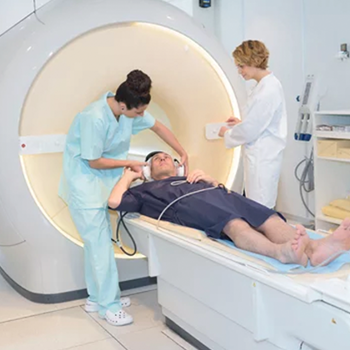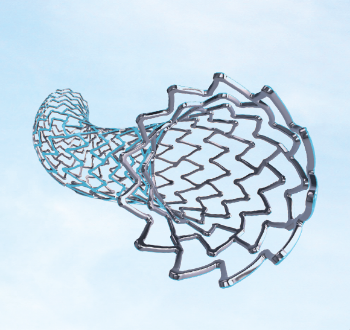
MRI Mastery: Unraveling the Secrets of Stents and Pacemakers
Magnetic Mysteries: Navigating MRI Scans with Implanted Stents and Pacemakers
14 Jun 2024
Magnetic Resonance Imaging (MRI) has been a game-changer in modern medicine. This non-invasive diagnostic tool allows doctors to peer inside the human body with unprecedented clarity, aiding in the diagnosis and management of various medical conditions. However, for individuals with implanted stents and pacemakers, the prospect of enduring an MRI scan can be shrouded in uncertainty and concern.
Understanding Tachycardia and Bradycardia for Better Heart Health
Before delving into the intricacies of MRI compatibility with implanted stents and pacemakers, let us first understand what Tachycardia and Bradycardia are:
Both Tachycardia and Bradycardia require proper medical evaluation and intervention. One common approach to managing these conditions involves implanting cardiac electronic devices, which are medical devices designed to regulate the heart rhythm.
While MRI compatibility with implanted stents and pacemakers is a crucial consideration for individuals managing devices implanted to treat arrhythmias, it’s equally important to focus on better heart health through appropriate management of these conditions. Here are some key points to keep in mind:
Implanted Pacemakers and MRI Scans
Myth: MRI Scans are Prohibited with Pacemakers
One prevailing myth is that individuals with pacemakers should avoid MRI scans altogether. The fear is that the strong magnetic fields of the MRI machine could interfere with the pacemaker’s functioning, potentially leading to irregular heartbeats or other complications.
Fact: MRI Compatibility with Pacemakers
In recent years, advancements in pacemaker technology have led to the development of MRI-conditional pacemakers. These devices are designed to function correctly within the MRI environment and can be safely used for individuals who require both pacemakers and MRI scans.
However, not all pacemakers are MRI-conditional, and patients need to discuss their specific devices and conditions under which these devices can undergo an MRI scan. When an MRI is necessary for someone with a pacemaker, the healthcare team can determine the safest course of action, which may include using an MRI-conditional device, programming the pacemaker appropriately, or closely monitoring the patient during the scan.
Implanted Stents and MRI Scans
Myth: MRI Scans are Off-Limits with Stents
One common myth surrounding stents is that MRI scans are off-limits for those who have them. Many believe that the magnetic fields and radio waves used in MRI machines could dislodge or heat the metal components of stents, leading to potentially dangerous consequences.
Fact: MRI Scans can be safely performed on individuals with stents, in most cases.
Modern stents are typically made from materials that are not significantly affected by the MRI magnetic fields. Patients with stents should inform their healthcare team about the presence of the stent and the need for an MRI scan. The medical staff can then assess the stent’s compatibility and take the necessary precautions to ensure the patient’s safety during the procedure.
Note: - Some older stents may not be suitable for MRI, so verifying the stent’s type and materials is essential.
Safety Precautions for MRI Scans with Implanted Devices
To ensure the safety of individuals with implanted stents & pacemakers during the MRI scans, certain precautions must be taken by both the patient and the medical professionals:
Expertise
Seek medical facilities and professionals experienced in performing MRI scans on individuals with implanted devices. They can ensure that the appropriate safety measures are in place.
Communication
Open & honest communication between patients and healthcare providers is crucial. Patients should inform their healthcare team about their implanted devices and MRI needs.
Device Compatibility
Verify that the implanted device (stent or pacemaker) is MRI-Conditional. If not, discuss alternative imaging methods with your healthcare provider.
Device Programming
It is necessary to adjust pacemaker settings before and after the MRI scan to reduce the risk of interference during the MRI.
Monitoring
Continuous monitoring during the MRI scan is essential to detect any irregularities in heart rhythm or device functioning.
Emergency Preparedness
Medical personnel should be prepared to handle unforeseen situations that may arise during the MRI scan.
Conclusion
Navigating MRI scans with implanted stents and pacemakers is indeed a magnetic mystery for many individuals managing cardiac devices implanted to treat Tachycardia and Bradycardia. However, understanding the facts surrounding MRI conditionality and taking the necessary precautions can help ensure the safety of these procedures. Furthermore, focusing on better heart health through regular check-ups, lifestyle modifications, and awareness is essential for managing heart rhythm disorders.
In the broader context of heart health in India, addressing the trending causes of heart attacks, such as unhealthy diets, sedentary lifestyles, and pollution, is crucial. By acknowledging these issues and taking steps to mitigate them, we can collectively work towards a heart-healthy India.
Disclaimer: The information presented by Boston Scientific India is for educational purposes only and does not recommend self-management of health issues. The information should not be treated as comprehensive and does not intend to provide diagnosis, treatment or any medical advice. Individual results may vary and hence, it is advisable to consult your doctor regarding any medical or health related diagnosis or treatment options.
IC-1849804AB-0324
Related Articles
Tags
Heart Attack | Tachycardia | Bradycardia | ICD | Pacemakers | Cardiac Ablation | Heart’s Rhythm






